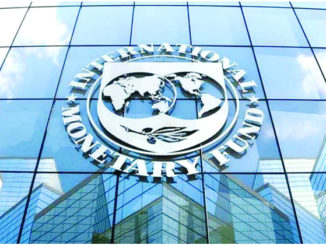
MUMBAI (TIP): In an attempt to increase retail participation in the capital markets, the Securities and Exchange Board of India (SEBI) has brought a host of changes that include a 10 % reservation for retail investors in an offer for sale (OFS) and permission for buying of shares for employee stock option schemes from the secondary market. OFS is akin to selling shares on the bourses through auction. The stock exchanges would offer a separate window for such share sales that are open during normal trading hours. The Sebi board after a meeting on Thursday said that a minimum 10% of the issue size should be reserved for retail investors i.e. investors bidding for amounts less than Rs 2 lakh under OFS.
“In case this percentage is not fully utilized, the unutilized portion may be offered to other investors,” it said. This is being done to encourage retail participation in OFS and enable all large shareholders including nonpromoter shareholders to use the OFS mechanism, Sebi said. The OFS mechanism would be made available for shareholders of top-200 companies by market capitalisation. Until now the OFS route was restricted to top-100 companies. “Non-promoter shareholders having shareholding of more than 10% or such percentage as specified by Sebi from time to time shall be eligible to use OFS.”
This move paves the way for the government to divest its residual stake in Hindustan Zinc Ltd. The Cabinet had in January cleared the selling of the residual stake in HZL. As for Employee stock option schemes and employee stock purchase schemes, Sebi said companies would be permitted to acquire shares from the secondary market under certain conditions to avoid forced dilution of capital. The move is in line with international practices but would require shareholders’ approval through special resolution.
The regulator has put in place safeguards that include at least a six month holding period for shares acquired from the secondary market. Besides, SEBI has also said that the minimum dilution to the public in an initial public offer (IPO) should be 25% or Rs. 400 crore, whichever is lower, for companies with post-capitalisation of less than Rs. 4000 crore.
“This will remove the anomaly that a company just short of Rs 4000 crore market capitalisation, was required to dilute about Rs. 1000 crore while another company at Rs. 4000 crore market capitalisation was required to dilute only Rs. 400 crore,” Sebi said. Companies with a post-capitalisation of above Rs. 4000 crore are required to dilute only 10% in an IPO. “Though much more needs to be done to bring the retail investors back, if good large companies make an IPO by diluting 10% but at reasonable valuations, it will be attractive for retail investors,” said Dara J Kalyaniwala, vice president—investment banking, PL Capital Markets.





Be the first to comment